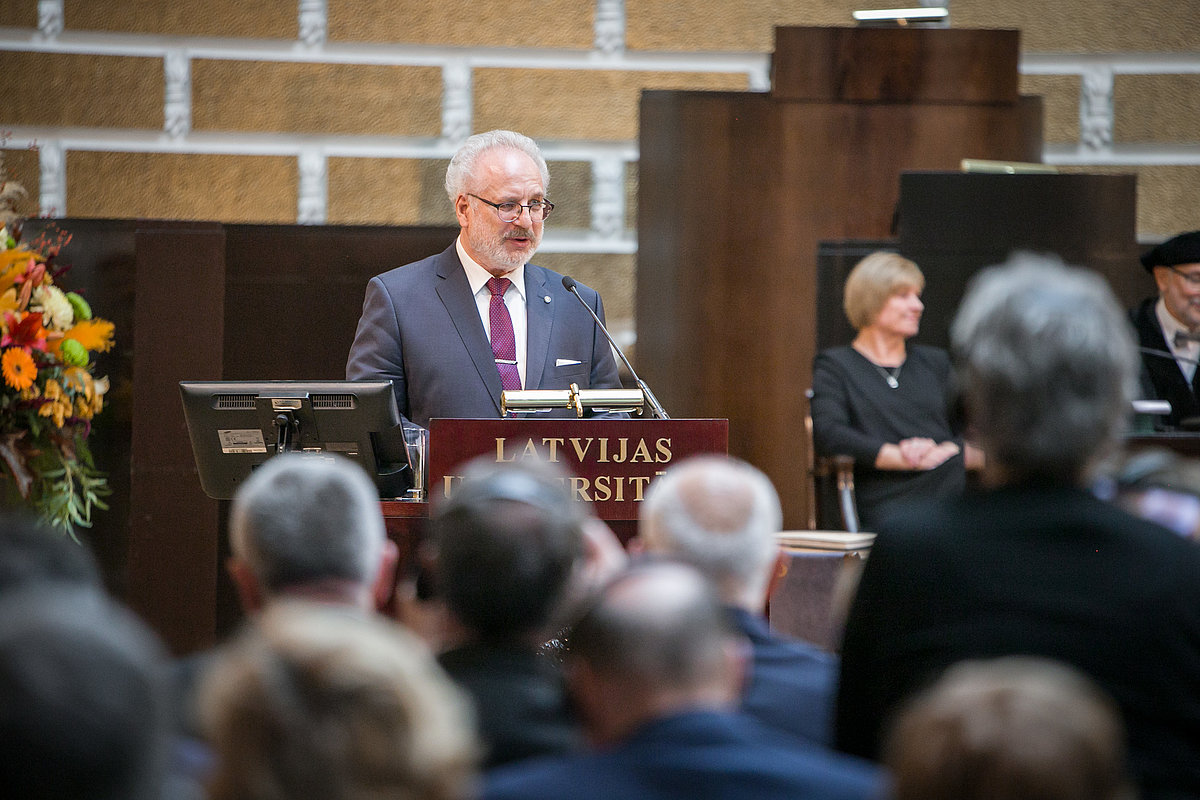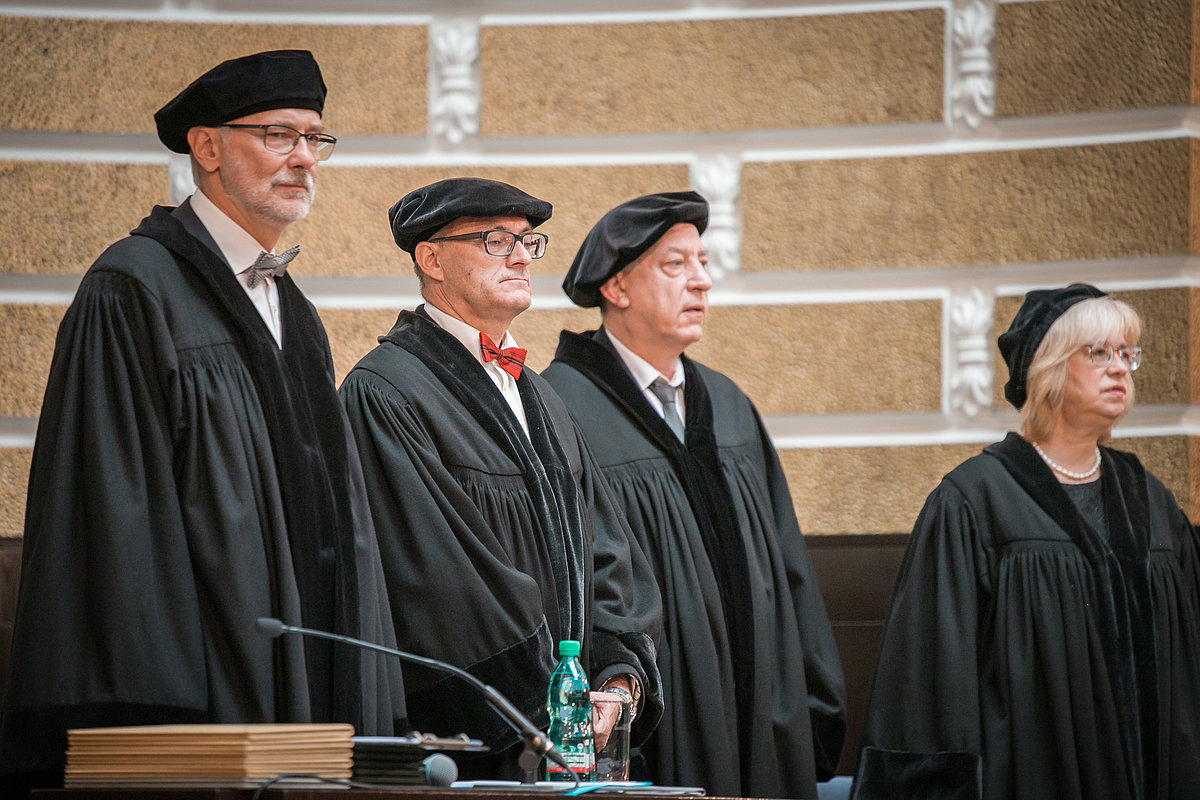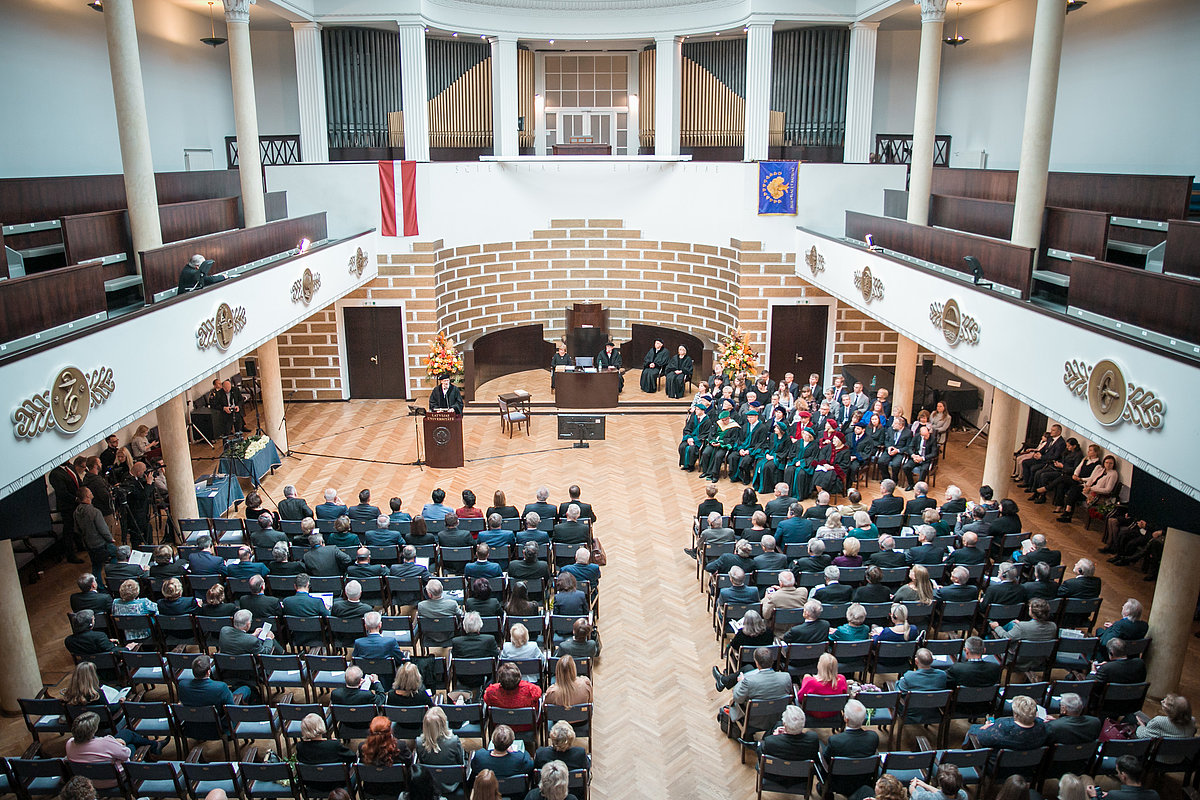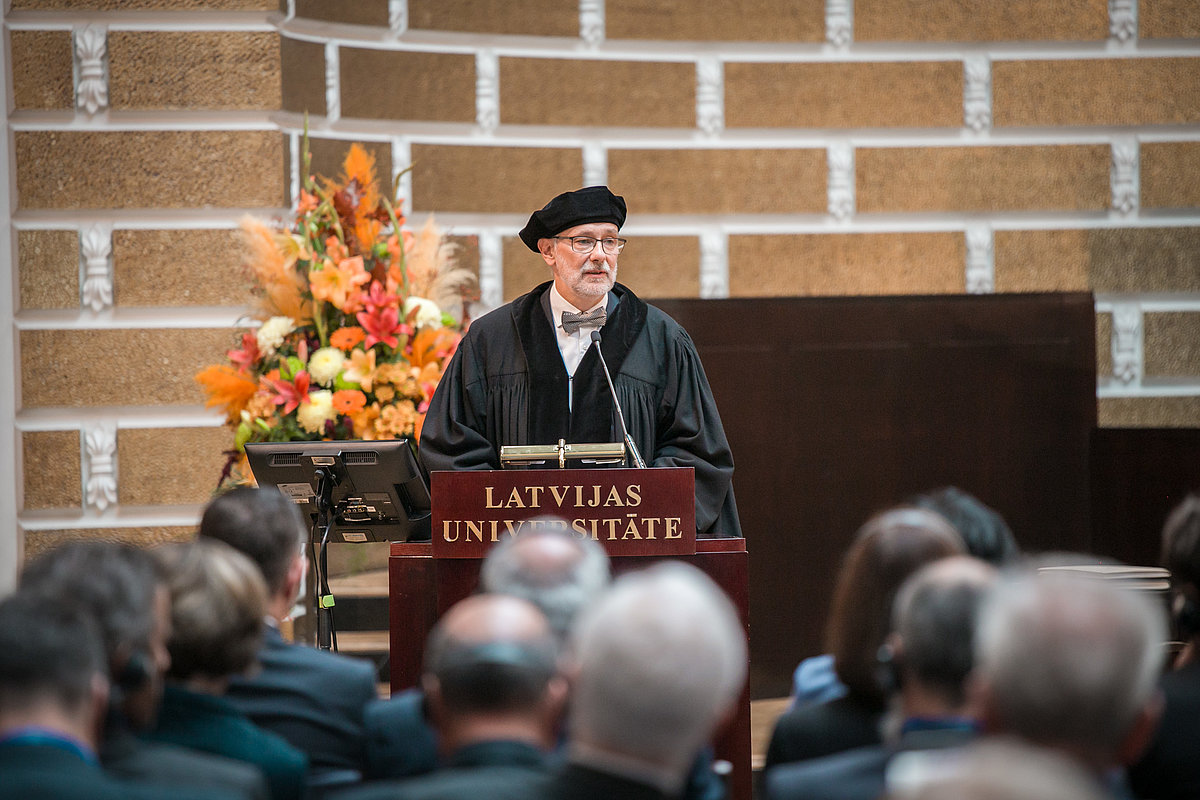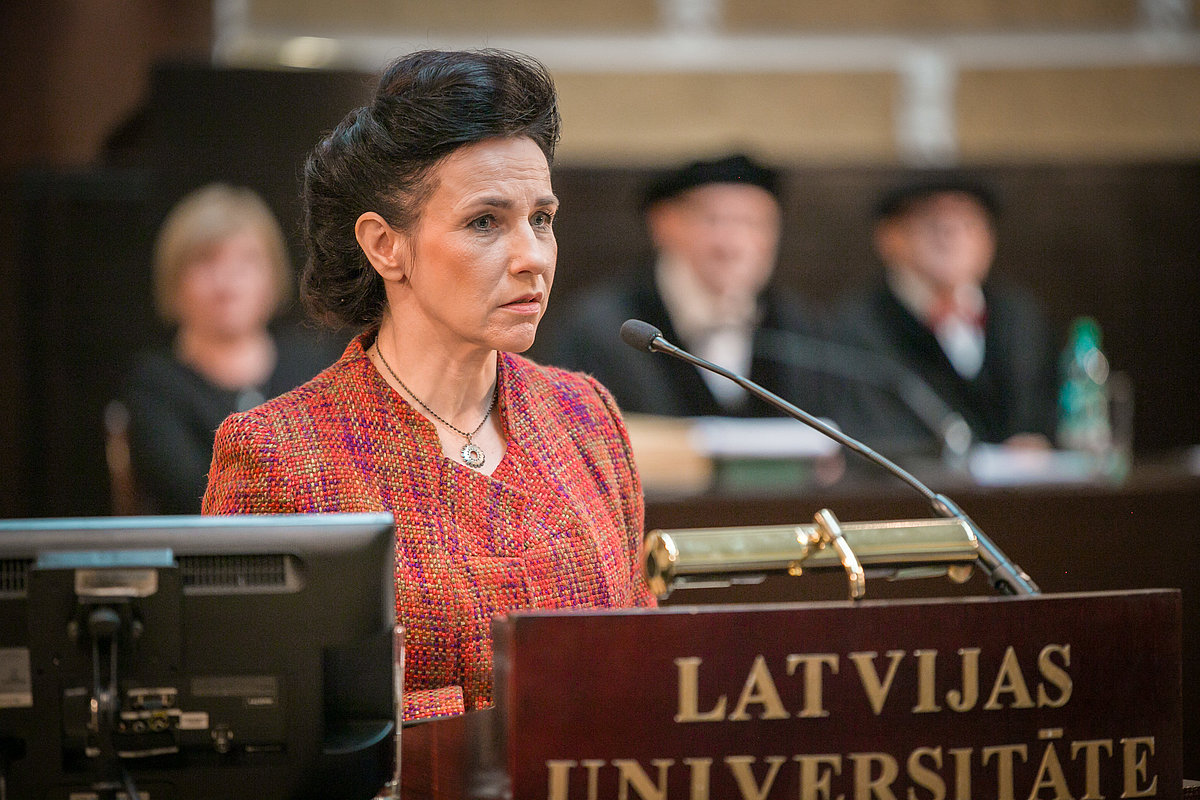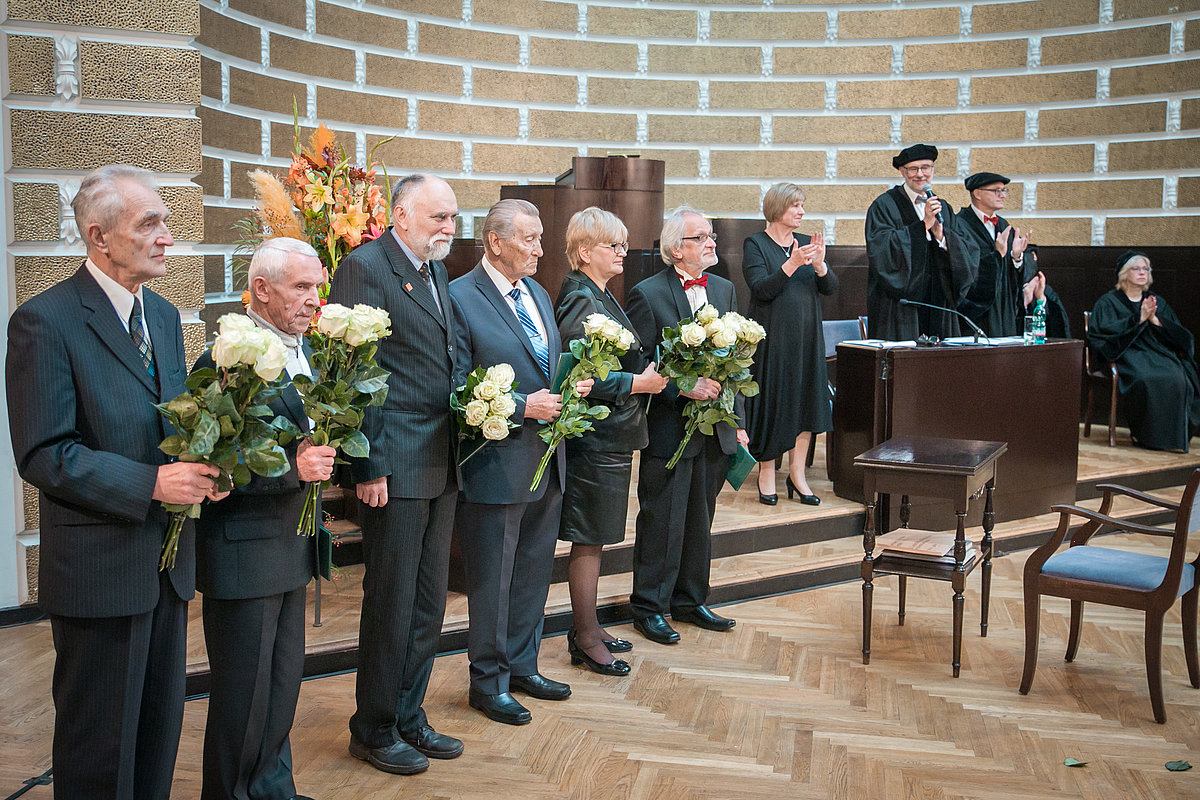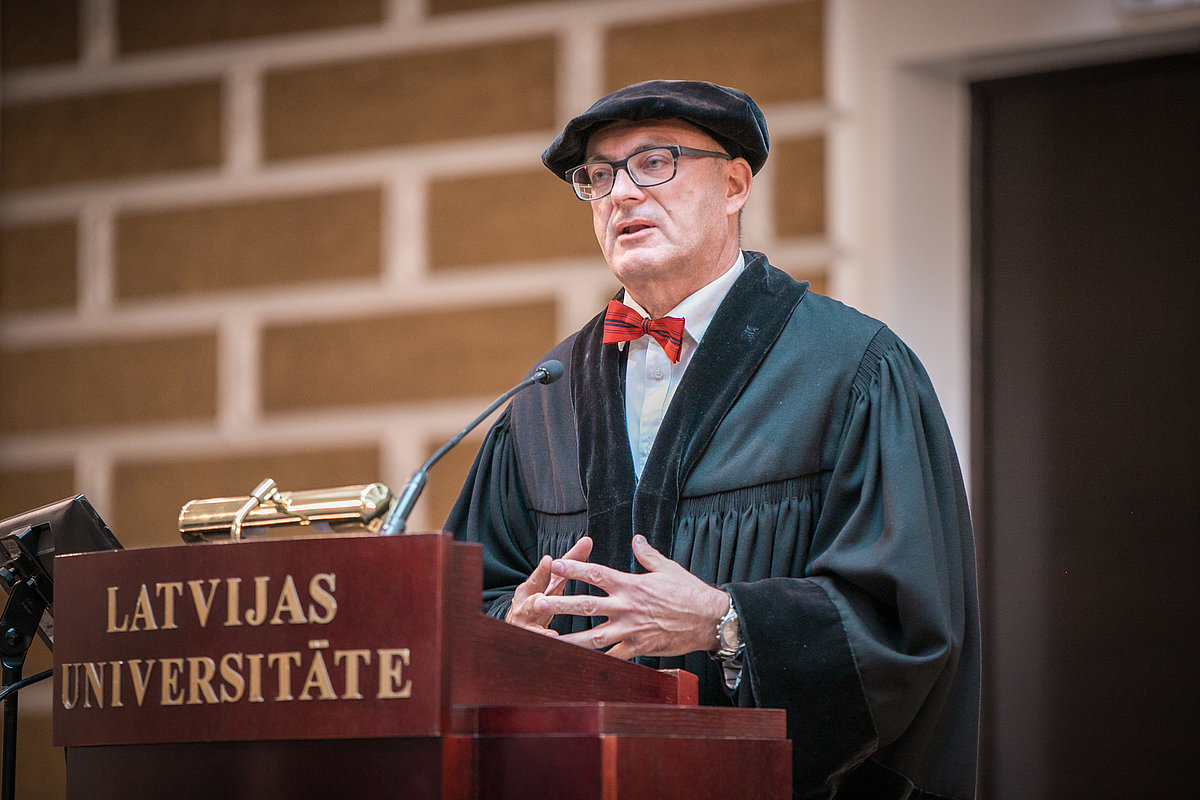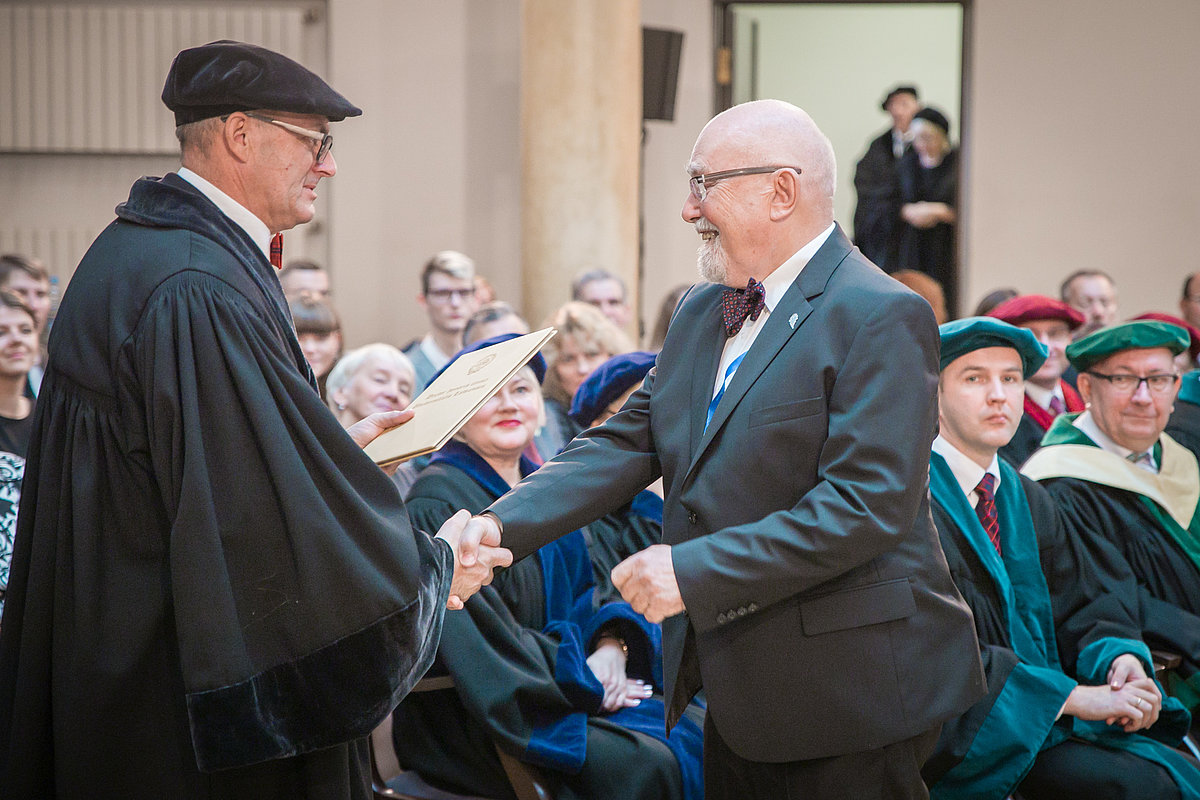
Opening the ceremonial meeting of the Senate, the Chair of the Senate Mārcis Auziņš spoke about the 1920 meeting of the Organisation Commission, whose task was to rename the Higher School of Latvia the University of Latvia. At the time, the candidacy of a German professor at the Faculty of Medicine was discussed. At that time, Rainis opposed the candidacy of that professor because, in his opinion, the aim of the national higher education institution was to develop Latvian intelligence, and it should support academicians and distinguished people of Latvia. He was opposed by linguist Jānis Endzelīns, who claimed that academic excellence and international recognition should come first regarding the UL.
In his speech, Professor Auziņš explained that these discussions still continue to this day.
“In today's world, a university can truly be a university only if it is internationally recognized, if it is a world leader in a certain sphere. At the same time, we understand that the UL has its own special mission – Latvian culture, history, language must be nurtured and studied at the UL. We are aware that we are the last frontier, and if we do not further this mission, then no one in the world will. Finding the right balance between the Latvian core and global outlook at the UL will always be of the utmost importance,” the professor emphasized.
In his address to the UL family, The Republic of Latvia President Egils Levits also traced the twists and turns of history, and subsequently outlined the characteristics of the contemporary University of Latvia that are required by the society and future generations. In his view, it should be accessible to everyone, regardless of the family's financial means, and therefore, essentially funded by the state.
“We need a University that ensures the modern succession and quality of the Latvian nation's elite. At the same time, there is a need for astute people with an acumen at local, regional and global level, well-rounded citizens with a broad outlook capable of sustaining democracy in Latvia over long term,” the President emphasized, adding that the UL should have the capacity to provide education of excellence in disciplines important to Latvia.
The Minister of Education and Science Ilga Šuplinska acknowledged that 1990, when the University of Latvia regained its name, is the second important milestone in the history of the university. I. Šuplinska is a graduate of the University of Latvia and she expressed her gratitude to her former lecturers.
She also explained the need for a change in the model of governance in higher education, with an emphasis on the interest of academic staff, openness of the higher education institution to internal and external cooperation in competitions selecting professors and rectors, internationalization and export of studies and rational infrastructure.
“Clear and transparent development-oriented governance of higher education and science institutions is the utmost goal,” said the Minister of Education.
Gvido Straube, Acting Rector of the University of Latvia, took the floor at the conclusion of the official speeches of the Senate. He called upon the University of Latvia to be united at its centenary – to stop for a moment and consider the origins and future destination of the University.
“During this time of celebration, I would very much like the UL team to reflect on where we are and where we need to go. For these thoughts to be truly human, we need to move in the direction indicated in our motto: to Science and Fatherland,” urged the professor.
Right now, the University of Latvia needs to be united in order to excel in the Latvian higher education community and further across the Baltics, Europe and the world, explained Professor Straube, adding that the University will only achieve this if it stands united.
The ceremonial meeting of the Senate was followed by greetings from honorary doctors, honorary members and professors emeritus.
Honorary Doctors:
- Gintautas Dzemyda – Professor, Vilnius University
- Klaus Hermann Franz Vogt – Professor, Humboldt University of Berlin
- Paul Albert Janmey – Professor, University of Pennsylvania
- Bernard Nacke – Professor, Leibniz University of Hannover
- Irina Perfilieva – Professor, University of Ostrava
Honorary Members:
- Pēteris Krastiņš – Chair of the Board, “Emergn” JSC
Professors Emeriti:
- Jānis Buls – Faculty of Physics, Mathematics and Optometry
- Uldis Krastiņš – Faculty of Law
- Maija Kūle – Faculty of History and Philosophy
- Nikolajs Nečvaļs – Faculty of Business, Management and Economics
- Aivars Tabuns – Faculty of Social Sciences
- Pēteris Zvidriņš – Faculty of Business, Management and Economics
After the ceremonial meeting of the Senate at the Great Hall, the guests from foreign universities gathered for the symposium “University and Society: Renewed Focus on National Growth and Values”. The aim of the symposium was to unfold the crucial role that establishing the first national institution had in shaping of Latvian statehood. The symposium was an opportunity to receive a contribution of university’s partners in outlining the role of universities in shaping national and societal value systems, to discuss the development of research, innovation and education capacities, and to strengthen the role of university networks in Europe.

 CONFERENCE
CONFERENCE